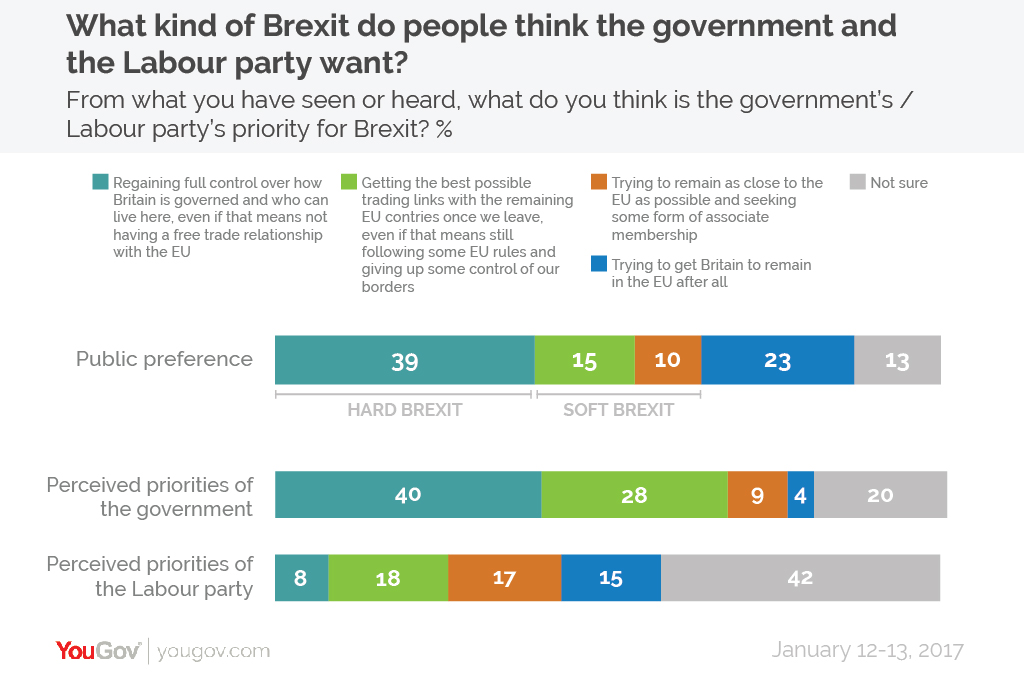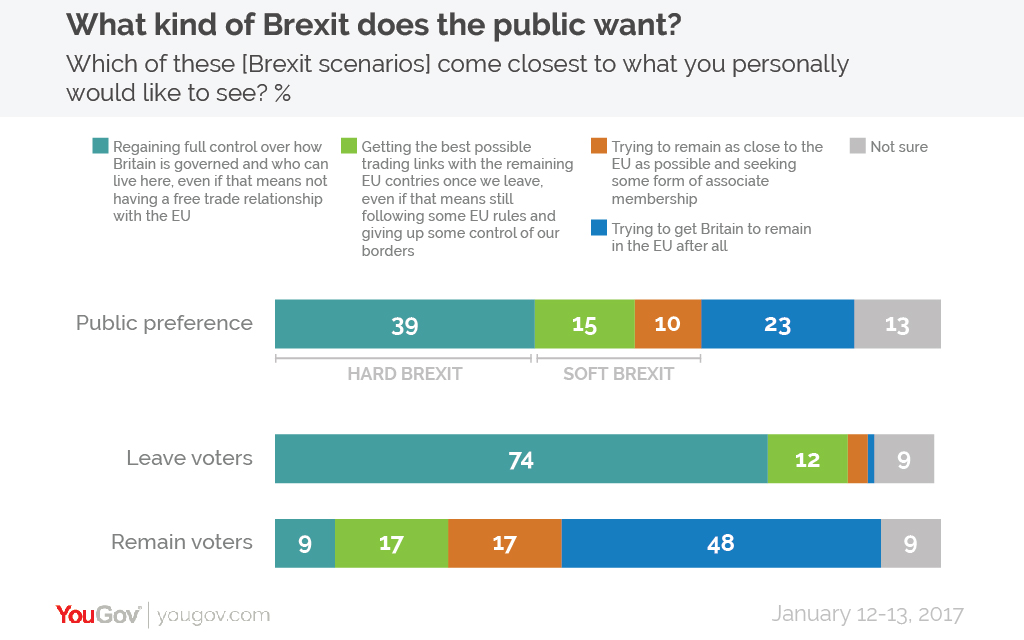I'm sure most people here are probably tired of reading yet more articles explaining why Brexit happened and how it was all because of this one factor and nothing else.
You should still probably read this (extremely long) breakdown by Dominic Cummings, who was one of the key Vote Leave guys - the article itself avoids any partisan prodding, though.
http://blogs.spectator.co.uk/2017/01/dominic-cummings-brexit-referendum-won/
A few quotes:
There's too much to quote really. It's a worthwhile article regardless of your position on Brexit.
You should still probably read this (extremely long) breakdown by Dominic Cummings, who was one of the key Vote Leave guys - the article itself avoids any partisan prodding, though.
http://blogs.spectator.co.uk/2017/01/dominic-cummings-brexit-referendum-won/
A few quotes:
Much political analysis revolves around competing simple stories based on one big factor such that, in retrospect, it was always clear that immigration would trump economic interest / Camerons negotiation was never going to be enough / there is an unstoppable populist tide, and so on. Alternatives are quickly thought to have been impossible (even if X argued the exact opposite repeatedly). The big event must have had an equally big single cause. Confirmation bias kicks in and evidence seeming to suggest that what actually happened would happen looms larger. People who are quite wrong quickly persuade themselves they were mostly right and had a strong feeling unlike, of course, the blind fools around them. Soon our actual history seems like the only way things could have played out. Brexit had to happen. Trump had to win.
The big why? is psychologically appealing but it is a mistake. In general terms it is the wrong way to look at history and it is specifically wrong about the referendum. If it were accurate we would have won by much more than we did given millions who were not happy with the way things are and would like to be out of the EU reluctantly voted IN out of fear. Such stories oversimplify and limit thinking about the much richer reality of branching histories.
The cold reality of the referendum is no clear story, no one big causal factor, and no inevitability it was men going at it blind. The result was an emergent property of many individual actions playing out amid a combination of three big forces (see below). Many of these actions were profoundly nonlinear and interdependent and the result that we actually witnessed was very close. If about 600,000 people just over 1% of registered voters had decided differently, IN would have won. This is a small enough margin that it could easily have happened if quite a few specific events and decisions had turned out differently. If just one person had behaved differently the dominant story now would be the economy was always going to trump a revolt against the elites, the status quo and the economy stupid always win which is what the overwhelming majority of pundits said before 23 June and in some cases had drafted for their columns after the vote.
Anybody who says I always knew X would win is fooling themselves. What actually happened was one of many branching histories and in many other branches of this network branches that almost happened and still seem almost real to me we lost.
Many pundits who described themselves as modernisers wrote columns over the years arguing that immigration was an issue because Cameron was making foolish promises about it and the media therefore paid more attention to it. This is wrong. Camerons foolish promises certainly made his situation worse but it is wrong to think that public interest in an issue is proportional to the attention paid by politicians and newspapers in SW1. The public only pays attention to a tiny subset of issues that politicians and the media bang on about. It is largely impossible to predict which things will catch fire and which will not, though process stories and scandals almost always have zero effect and insiders repeatedly get this wrong
2. If Cameron/Osborne had had a top notch person like David Plouffe running their campaign and they did as they were told then they would have won (>95% confidence), all else being equal. They were warned many times by their closest friends about Oliver and Llewellyn, including by Gove, but would not listen.
Connected to this idea is that the great rationalists Cameron and Osborne they of Project Fear and their comic emergency budget and in 2015 the pictures of Salmond picking pockets designed successfully to persuade the English that the Scots would steal their money were undone by a great surge of emotion. Osborne is taking this delusion so far he is writing a book titled ludicrously The age of unreason. When you lose and you blame it on millions of people being overtaken by unreason after previously winning by exploiting nationalist hostility its a sure sign that you are the one not reasoning straight and able to face your errors. For the likes of Osborne it is irrational to reject the views of people like him. For most of us, people like Osborne are not experts to be trusted they are charlatans not to be taken seriously.
...
Cameron, Osborne, Mandelson, Campbell and Clegg spent much of the last 20 years lying through their teeth to further their own interests and prestige. Now they whine about lies. They deserved worse than they got and reasonable Remain-ers deserved better leadership.
One of the most misleading stories in politics is the story of the centre ground. In this story peoples views are distributed on an X-axis with extreme left at one end, extreme right at the other end, and the centre ground in the middle. People in the centre are moderate. Extremists are always lurching while sensible moderates are urged to occupy the centre.
This story is one of the dominant features of political discussion and the basis for endless interviews, columns, and attempts at political strategy. The story is deeply flawed and where it is not trivially true it is deeply misleading.
..
One of the key delusions that the centre ground caused in SW1 concerned immigration. Most people convinced themselves that swing voters must have a moderate and centre ground view between Farage and Corbyn. Wrong. About 80% of the country including almost all swing voters agreed with UKIP that immigration was out of control and something like an Australian points system was a good idea. This was true across party lines.
There's too much to quote really. It's a worthwhile article regardless of your position on Brexit.





